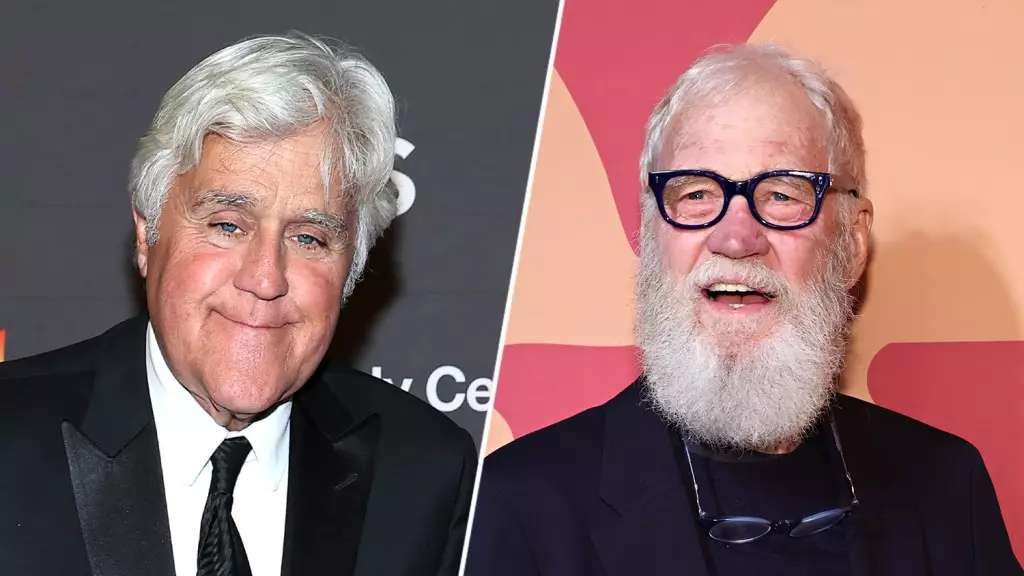Over three decades have passed since the late-night rivalry between Jay Leno and David Letterman marked a significant chapter in television history. In recent comments, Leno expressed a renewed willingness to mend the frayed edges of their past collaboration. His surprising openness to a reunion underscores a larger reflection on the intricacies of friendship, rivalry, and the media landscape. Leno’s remarks, made during an interview on *In Depth with Graham Bensinger,* reveal not only his own feelings but also the complexities that have defined their mutual history.
Awkward Encounters: The Nature of Their Relationship
Leno candidly shared experiences that highlight the disconnect and awkwardness that often characterizes their interactions. The anecdote of a surprise visit to Letterman’s Malibu residence illustrates a fundamental truth about their relationship: they not only tread different creative waters but have different social rhythms. While both share a comedic foundation, the gulf between their personalities is markedly stark. Leno described the encounter as “awkward,” emphasizing that despite their shared profession, they struggle to connect on a personal level. Herein lies a paradox of celebrity: public personas may present a unified front, but privately, the human experience can be riddled with discomfort and unease.
The Inevitable Comparison: Who Reigns Supreme?
A pivotal moment in television history occurred in 1992 when Leno was chosen to take over *The Tonight Show,* famously edging out Letterman. This decision entrenched a rivalry that dominated the late-night talk show space for years. Audiences were often left to take sides in a high-stakes game of late-night poker. Leno’s reflection on their contrasting interests, especially regarding sports—an area Letterman revels in while Leno admits to having no affinity—further emphasizes how their worlds diverged. Unlike the gentler sibling rivalry often described in familial terms, Leno and Letterman’s dynamic showcased fiercer competition, laden with misunderstandings and misaligned priorities.
The Evolution of Personal Growth
What makes Leno’s willingness to reconcile intriguing is his recognition of personal and professional evolution. Rather than holding onto grudges or lingering tensions, he seems interested in moving forward. His awareness that “instigating” reunions might backfire is insightful, demonstrating a maturity that often eludes public figures. This humility presents Leno as not just a comic but also a man reflecting on his journey in the entertainment industry. In acknowledging his own quirks—similar yet distinct from Letterman’s—he sheds light on the beauty of embracing one’s personality while also recognizing the limitations of connection when foundational interests differ.
The Future of Late Night: A Collaborative Dream?
In contemporary late-night discussions, where diversity of thought and style are celebrated, the potential recalibration of Leno and Letterman’s relationship could serve as an inspiring reminder of growth. Engaging in a reunion could not only revitalize their shared history but also present a unique opportunity to engage audiences with lessons learned over the decades. Leno’s willingness signals a desire to transcend past rivalries in favor of cooperation; it raises the tantalizing question: could their next chapter redefine late-night television? As dialogues around reconciliation mount, audiences can only hope that both stars see the value in turning the page and writing new narratives together.


Leave a Reply